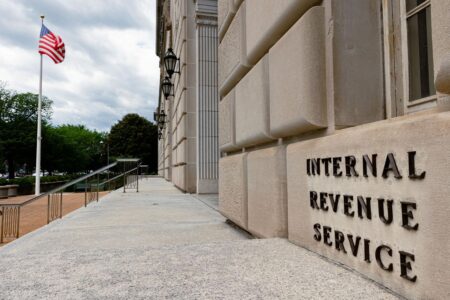Last month, the Department of Justice sued Live Nation Entertainment alleging antitrust law violations. The lawsuit — which aims for Ticketmaster to be spun off from Live Nation — is unlikely to affect the company’s stock price.
What could affect Live Nation’s stock price — which has lost 26% of its value since peaking at $126 in February 2022 — is the gap between expected and actual revenue growth.
Live Nation has already signaled growth is likely to slow down — from 21.5% in the first quarter of 2024 to 5% in the current quarter ending this month, according to my May Forbes post.
Since then, three new developments suggest that 5% growth could be overly optimistic:
- A slew of concert cancellations;
- A drop in average resale ticket prices; and
- The possible sale of identification data from hundreds of millions of hacked Ticketmaster customer accounts, according to the New York Times.
While the first two items could slow down sales soon, the last one could hurt the company’s reputation and heightens the need for more competition in the industry.
I requested comment from Live Nation and will update this post if I receive a reply.
Concert Cancellations
Live Nation reported strong first quarter results and forecast a significant growth slowdown. The company reported a 21.5% increase in revenue to $3.8 billion in the March 2024-ending quarter — 16.5% more than the consensus estimate, according to Google Finance.
Sadly for investors, analysts anticipate Live Nation’s growth to slow to 5% in the June 2024-ending quarter — to $3.28 billion — far slower than the previous year’s 73.5% revenue increase, reported Yahoo! Finance.
Since then, major artists have suddenly begun canceling shows and entire tours. On May 31, Jennifer Lopez announced the cancellation of her 2024 tour, citing “a desire to spend more time with her family,” reported NBC News. Moreover, Black Keys abandoned its planned stadium tour — opting to perform in smaller venues, according to NBC News.
My guess is these two acts were unable to sell enough tickets to make their tours economically attractive. How so? Screen shots showing “empty venues at select tour dates” appeared on social media, wrote NBC News which “could not directly verify” the screen shots.
Other acts are canceling parts of their tours. Pop-rock band 311 cited “rising costs of touring overseas,” which made completing certain portions of the tour “unfeasible” as the reason for canceling the band’s upcoming European tour dates, noted NBC News.
Pink and Justin Timberlake recently canceled some show dates, while the Jonas Brothers “recently postponed their upcoming European tour,” NBC News reported.
To be sure, more popular acts continue to generate demand for high-priced concert seats. These include Olivia Rodrigo’s “Guts” tour whose average resale ticket price is $571, followed by $409 to see Morgan Wallen, according to SeatGeek data first reported by Axios.
Declining Ticket Prices
A decline in ticket prices could also crimp Live Nation revenue growth. For example, while movie and concert admissions prices climbed 3.4% through April 2024, that increase is the lowest reading since 2021 and the second-consecutive month showing a slowdown, according to a May 2024 U.S. Bureau of Labor Statistics report.
What’s more average resale ticket prices are down. More specifically, the average resale ticket price for a summer concert has fallen 17% since 2023 from $257 to $213, according to a SeatGeek email featured in an NBC News report.
What is behind the dropping prices? Three factors:
- The end of the post-pandemic concert surge. Last year concertgoers seemed willing to pay high prices to attend concerts in person after years of pandemic-era isolation. “The days where there was enough demand to sell out arenas at top dollar just isn’t there in this live events economy — outside of people like Taylor Swift who can sell whatever they want wherever they want,” Dave Clark, editor of Ticket News, told NBC News.
- Too much competition for concertgoers. Acts are no longer making money from recordings — they must tour to make a living and they use records to market their concerts, as I co-wrote in my business school case, Chokehold on Live Entertainment. These economic forces are behind an oversupply of concerts, Clark added.
- Tightening consumer budgets. More consumers are unwilling to give up necessities to pay high concert ticket prices. “People are seeing some of the prices they’re asking and just saying, ‘Hard pass.’ ” Clark said.
“The tickets are too expensive,” Brittney D’Mello, a 23-year-old K-pop fan from New Jersey who works in corporate marketing, posted to X.
“There’s only a SMALL amount of people (10%) that will spend $500+ on vip/floor/premium. The rest of us have budgets and won’t spend $100 on nosebleeds. Everyone is touring this year … and we only have money for 2-3 concerts MAX,” she added.
Hacked Ticketmaster Customer Account Data For Sale
On top of these problems, the limited competition in the ticketing industry means consumers have little choice when things go wrong.
That is what happened on May 20 to Ticketmaster when Live Nation identified “unauthorized activity” and issued a regulatory filing that a hacker is offering alleged Ticketmaster user data for sale on the dark web, according to CNN.
How bad will this be for ticket buyers? “Ticketmaster has not returned multiple requests for comment, and the filing did not confirm the scale of the hack,” CNN wrote.
The damage could be significant. The alleged hacker — ShinyHunters — posted it had the identifying information of 560 million Ticketmaster customers, including “credit card numbers and ticket sales,” reported the Times. ShinyHunters is asking $500,000 for the 1.3 terabyte data trove, noted the Times.
If this is true, many Ticketmaster customers could be canceling their credit cards.
The resulting concertgoer frustration is another reason not to catch the falling knife that is Live Nation Entertainment stock.
Read the full article here














